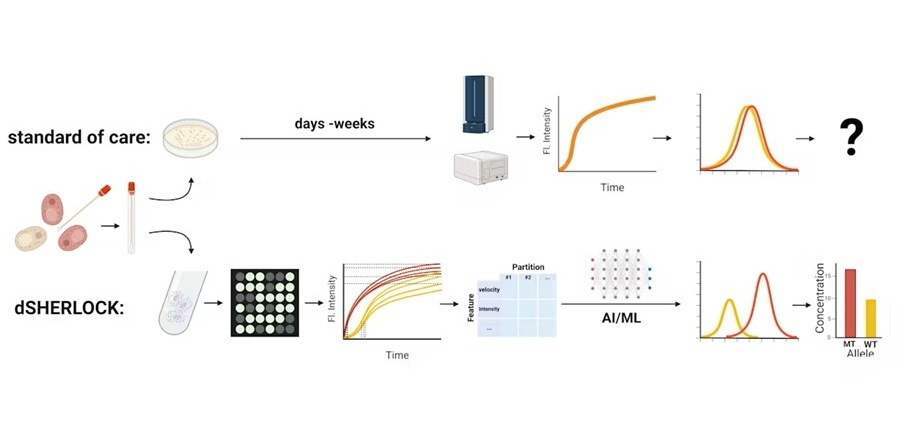Diagnostic Test Accurately Detects Colorectal Cancer by Identifying Microbial Signature in Gut Bacteria
Posted on 05 Jun 2025

Colorectal cancer remains one of the deadliest and most common forms of cancer worldwide, with only 40% of cases diagnosed before metastasis. Current screening methods, like colonoscopy, are invasive and resource-intensive, limiting early detection efforts. The link between the gut microbiome and colorectal cancer was first identified several years ago. Certain bacteria present in the gut microbiota have the capacity to interfere with human cellular processes and are believed to contribute to cancer development over time. In some instances, this is due to their production of toxins that can damage DNA, leading to mutations, one of the key drivers of cancer. This suggests that the gut microbiota may help create conditions that promote the onset of the disease. Researchers have been working toward using the gut microbiome as a clinical target for screening for colorectal cancer. This would ideally allow simple stool tests to be used for early detection of the disease in place of expensive procedures such as colonoscopies. Now, an international research team has identified a unique microbial signature in stool samples that could lead to a highly accurate, non-invasive screening test based on gut microbiome analysis.
The multidisciplinary study, coordinated by the University of Trento (Trento, Italy), drew on the team’s expertise in microbiology, computational biology, and oncology to explore the potential of gut metagenomics in cancer detection. The researchers discovered that a specific group of around a dozen bacterial species consistently appears in greater numbers in the guts of individuals with colorectal cancer. Among the well-known bacteria is Fusobacterium nucleatum, alongside others such as Parvimonas micra, Gemella morbillorum, and Peptostreptococcus stomatis. These bacteria are typically present in the mouths of healthy individuals, but their presence in stool samples appears to be strongly associated with colorectal cancer. This microbial signature, identified through gut metagenomic sequencing, achieved nearly 90% accuracy in distinguishing between healthy individuals and those with the disease. Notably, the presence and abundance of these bacteria also correlate with the cancer’s stage and anatomical location, offering additional clinical insights.
A critical component of this breakthrough was the application of a novel machine learning framework developed by the research team. The model interprets complex microbiome patterns in stool samples to predict cancer presence with high confidence. While the study primarily focuses on early detection, the microbial signature may also offer clues about disease mechanisms. Some of these bacteria may promote cancer development by producing DNA-damaging toxins, further underscoring the complex relationship between the microbiome and carcinogenesis. However, the researchers stress that even without establishing causality, the value of this tool as a screening method remains significant. If validated through future clinical trials, this approach could complement or partially replace invasive procedures, such as colonoscopies, by allowing their use only in high-risk individuals identified through microbiome screening. This would streamline cancer detection, improve patient comfort, and potentially enable earlier treatment.













